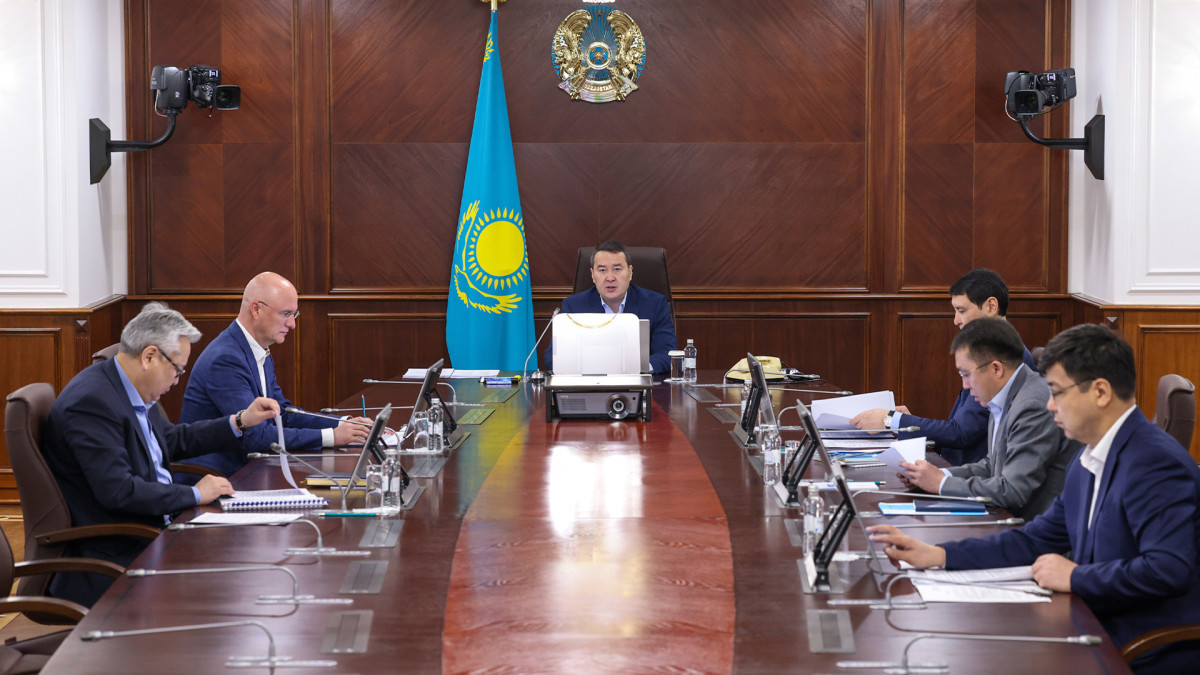
Kazakh PM critical of drinking water supply long construction work

EL.KZ Информационно-познавательный портал
On Saturday, May 20, Prime Minister of Kazakhstan Alikhan Smailov held a meeting of the Coordination Council, which considered measures to ensure water supply to settlements.
Minister of Industry and Infrastructural Development Marat Karabayev reported that on behalf of the Head of State by the end of 2025 it is planned to provide 100% access to clean drinking water. Today, the access to water services in the cities reaches 98.4%, in rural areas it is 94.5%. The lowest coverage is in the cities of Abay, Akmola and Zhambyl regions, as well as in the villages of Akmola, Kostanay and North Kazakhstan regions.
This year, 280 billion tenge has been allocated from the budget to implement 402 projects for the construction and reconstruction of water supply and sewage systems. In general, it is necessary to provide clean drinking water to all residents of the remaining 25 cities and 1,395 villages by 2025. In this regard, a relevant plan has been developed, which takes into account each settlement of the republic. The monitoring is carried out, including in terms of prospecting and exploration works, development of design and estimate documentation and progress of construction and installation works.
Nurken Sharbiyev, Deputy Minister of Ecology, reported on the progress of construction and reconstruction of group water pipelines. Akims of Kostanay region Kumar Aksakalov, Turkestan region Darkhan Satybaldy, West Kazakhstan region Nariman Turegaliyev told about measures taken in regions.
Prime Minister recalled that in early May at a meeting of the Government noted the delay in completing long constructio on the projects of drinking water. At the same time, while the terms of completion of facilities under construction are delayed, the existing infrastructure is falling into disrepair.
"Thus, residents of the Kargaly residential area in Aktobe complain about systematic disconnection of cold and hot water. In Yegindykol district of Akmola region the only source of water supply for 12 villages is the worn-out Nurinsk water pipeline, water losses on which reach 70-80%. Residents of these villages because of regular outages remain without water for months," Alikhan Smailov said.
He also added that the water pipeline in Kishi Baiserke village of Talgar district of Almaty region is not fully functional.
"These are just a few examples of the 9,000 officially filed complaints from the population for the current year," the Prime Minister stressed.
He also pointed to other shortcomings in the field. In particular, project documentation is not ready in Abay, Almaty, Atyrau, Zhambyl and Turkestan regions. In addition, despite the need to install water purification modules in 154 villages, the akimats of Almaty, West Kazakhstan, Kyzylorda and Turkestan regions have not provided the necessary funds in full.
"Taking into account the high social significance of water supply issues, each region, especially those with the lowest indicators, should intensify the pace of work. The Ministry of Industry needs to ensure stricter control," Alikhan Smailov said.
According to him, the next important block in the ongoing work is to ensure the appropriate digitalization of the water industry.
"Automation of water supply production processes will ensure more rational water consumption. This will reduce its losses, failure of networks and facilities, as well as reduce costs. As part of this direction, the Interactive Natural Resources Map with the "Water Resources" module should be implemented by the end of this year. In addition, all available installations and hydraulic structures should be equipped with necessary accounting devices," Head of the Government noted.
In conclusion, Alikhan Smailov ordered to work out issues on operative completion of all "long-term constructions" on drinking water supply, to provide development of necessary project documentation on 115 settlements scheduled for water supply next year, to complete exploration works in 22 settlements and to prepare project documentation on automation of production processes of water supply and sewerage in 20 towns until the end of the year.

